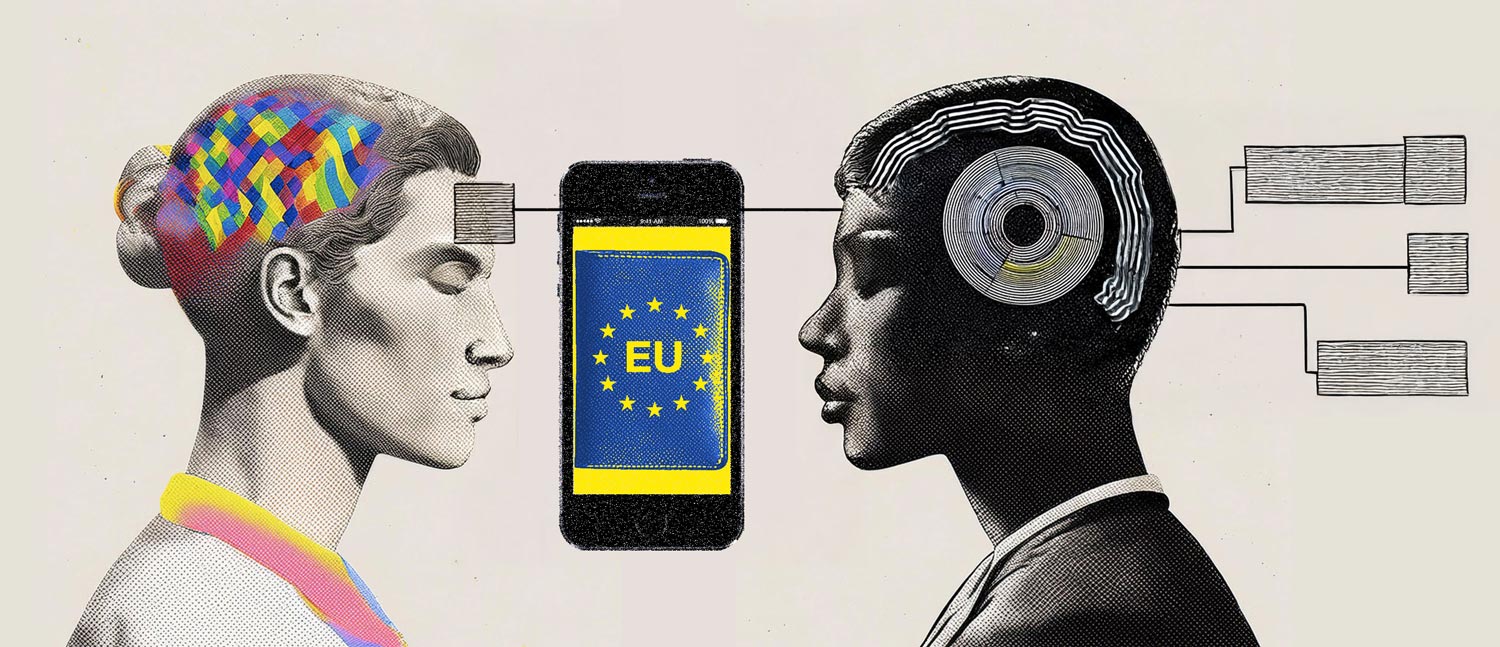EUDI wallet — The digital identity is coming

At the end of 2026, EU member states must provide a digital wallet — What does this mean for companies?
I've lost my wallet. Once again. 17% of Germans feel this way every year and every time it means stress: Apply for a new EC card, imitate an identity card, get a driver's license again. Unnecessary, time-consuming, expensive. But it may be over soon — if you trust the EU's promise.
The digital identity should make everything easier. No more plastic, no more paper, just my smartphone as an official ID. Sounds good? Perhaps. But when I think about it that way, it means that my entire identity is on one device. Is that really safe? Who protects me when someone else uses my data?
The EUDI wallet should become a reality for all EU citizens from 2027. A system that should digitally manage identity cards, driver's licenses, bank identities and even health data. Six European companies are currently working on the German version of the EUDI wallet based on technical requirements from Brussels. These are part of a competition led by the Federal Agency for Jump Innovation and should present a first prototype of their version of the EUDI wallet by May 2025.
What incentives will motivate companies and users to switch to an EUDI wallet will also be decisive. Broad acceptance requires a functioning ecosystem. Companies, authorities and citizens must adapt to this new reality at an early stage, but many questions remain unanswered.
The EUDI wallet: A brief overview
The EUDI wallet (European Digital Identity Wallet) is a project of the EU Commission within the framework of the eIDAS 2.0 regulation. The aim is to create a uniform digital identity solution for all EU citizens. Authorities and companies should be able to access them to verify identities online — whether for banking transactions, hotel bookings or tax returns.
The EUDI wallet stores identity data decentrally on your smartphone or other digital devices, which means that it is not stored on central servers. This replaces today's physical identification methods and provides additional security through local storage. The EU underlines that it should remain voluntary. Although there are no plans to make them mandatory so far, critics warn that increasing integration into public and private services could create a de facto dependency. As soon as more and more companies and authorities only accept the digital identity, it will be almost impossible for citizens to get along without it.
How does digital identity work?
In principle, it's very simple: The wallet stores personal documents, which the user verifies using a biometric process or PIN. Authorities, banks or online retailers can then access this identity data — in theory only with the user's consent.
But this is exactly where you often hear worrying concerns:
Who guarantees that my data is not misused?
What happens if my phone is hacked?
Can I really fully control my identity?
The EU promises high security standards, including end-to-end encryption, zero-knowledge proofs, and decentralized storage. This means that personal identity data is not stored on central servers. In practice, the question is how effective mechanisms such as data minimization and zero-knowledge proofs really are to ensure that companies and government agencies only access the necessary data. The data cockpit should enable all users to control the transfer of their data and ensure that cyber attacks are minimized.
What companies need to know
For companies, the EUDI wallet is a revolution — but also a massive conversion effort. So far, digital sales processes have been based on classic login methods, email verification and passwords. The EUDI wallet is changing the way identities are verified: In future, this will be done via a state-regulated infrastructure that requires certification processes in accordance with eIDAS 2.0. In other words, companies must adapt their systems accordingly in order to integrate wallet-compatible interfaces and carry out the necessary IT infrastructure updates. Banks, insurance companies, e-commerce platforms and even social media providers should be prepared for this.
Are society and economy ready?
The EUDI wallet is undoubtedly one of the biggest European digital innovations in recent years. A big step towards reducing bureaucracy and speeding up processes. However, there are currently still some unanswered questions regarding data sovereignty, security and control over one's own identity.


Catchy podcast or seminar headline
Would you like to receive more information about the EUDI wallet and stay up to date about events on the subject? Simply fill out this contact form.



